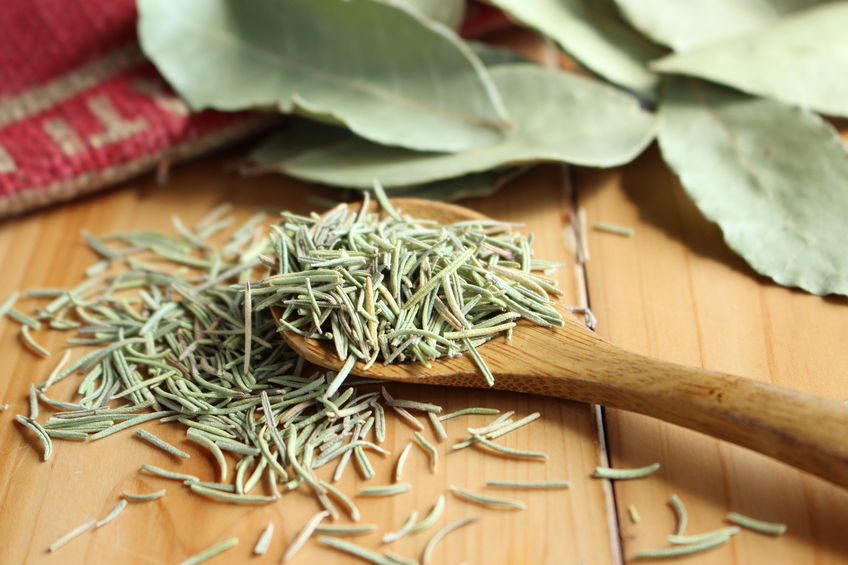The wonderful aromatic and pine fragrance of rosemary is a favorite in many culinary dishes. It conjures up memories of great food and fabulous get-togethers. But what is more, rosemary or rosmarinus officinalis is packed with a myriad of healthy vitamins and minerals.
Brief History
Rosemary is a longstanding herb that dates back centuries. It is known as a symbol of friendship and a strong association for remembering important events. The early Romans and Greeks tossed sprigs of rosemary into graves as a sign to never forget the departed. Brides during the Tudor period in Wales and England wore sprigs of rosemary so signify that they would never forget their family.
Legend is told, rosemary was draped around Aphrodite who is the Greek goddess of love, beauty and procreation. As well, it is said that the Virgin Mary laid her blue cloak on a white-blossomed rosemary bush when she once rested. This is how the aromatic shrub got its name, hence “Rose of Mary”.
An Array of Wonderful Benefits
Rosemary is comprised of elements that are said to be useful for increasing circulation, boosting the immune system and helping the digestion. The herb is also known as an anti-inflammatory that may decrease the severity of asthma attacks.
As well, studies show that rosemary can increase blood flow to the head and brain which can stimulate concentration. Indeed, adding rosemary to a dish is a wise and scrumptious choice.
One of the most significant elements of rosemary is caffeic acid and the derivative rosmarinic acid. The rosmarinic acid in this fine herb contains many medicinal properties. It works as an antibacterial, antiviral, antioxidant and as an anti-inflammatory. It is plain to see that rosemary contains a powerhouse of health benefits.
Packed with Nutritional Value
Related to the mint family, this aromatic evergreen shrub is more than just the perfect ornamental plant for landscapes. In truth, rosemary has an abundant amount of nutrients. Here are just a few:
High in dietary fiber and low in caleries: Rosemary is a great source of fiber plus it does not contain cholesterol. Dried leaves provide 42.6 g of fiber per 100g. Fresh leaves provide 14.1 g of fiber per 100g. Each 100g is just 131 calories.
Vitamin A: Rosemary is a great source of vitamin A (beta-carotene). It contains 68.80 IU of vitamin A in each small serving. That is 1.38% of the recommended daily value (DV). Vitamin A is essential for healthy teeth, bones, soft tissue, mucous membranes, and the skin. Vitamin A is also needed for good eye health.
Vitamin C: Rosemary leaves contain substantial amounts of vitamin C. In fact, dried rosemary contains 61.2 mg of Vitamin C per 100g. Fresh rosemary has 21.8 mg of Vitamin C per 100g. This important vitamin is needed for boosting immunity and collagen synthesis.
B Vitamins: This wonder herb is also high in B vitamins like folic acid and pyridoxine which is imperative for the repair and synthesis of RNA and DNA. As well, B vitamins are known to prevent birth defects of a baby’s spine or brain in pregnant women. Rosemary contains 0.04 milligrams of B6. That is 1.3 milligrams needed for healthy adults.
Essential Oil
Rosemary contains an array of essential oils and phytochemicals including betulinic acid, borneol, caffeic acid, camphene, camphor, cineole, flavonoids, limonene, pinene, triterpenic acids and tannins.
In India, essential oils and extracts are used in traditional medicine to treat numerous conditions and disorders.
Potential Side Affects
Although rosemary has several health benefits, there are a few things you need to be aware of. As well, before taking any medications or herbs you should consult with a healthcare specialist first. Some precautions include:





























Leave A Comment